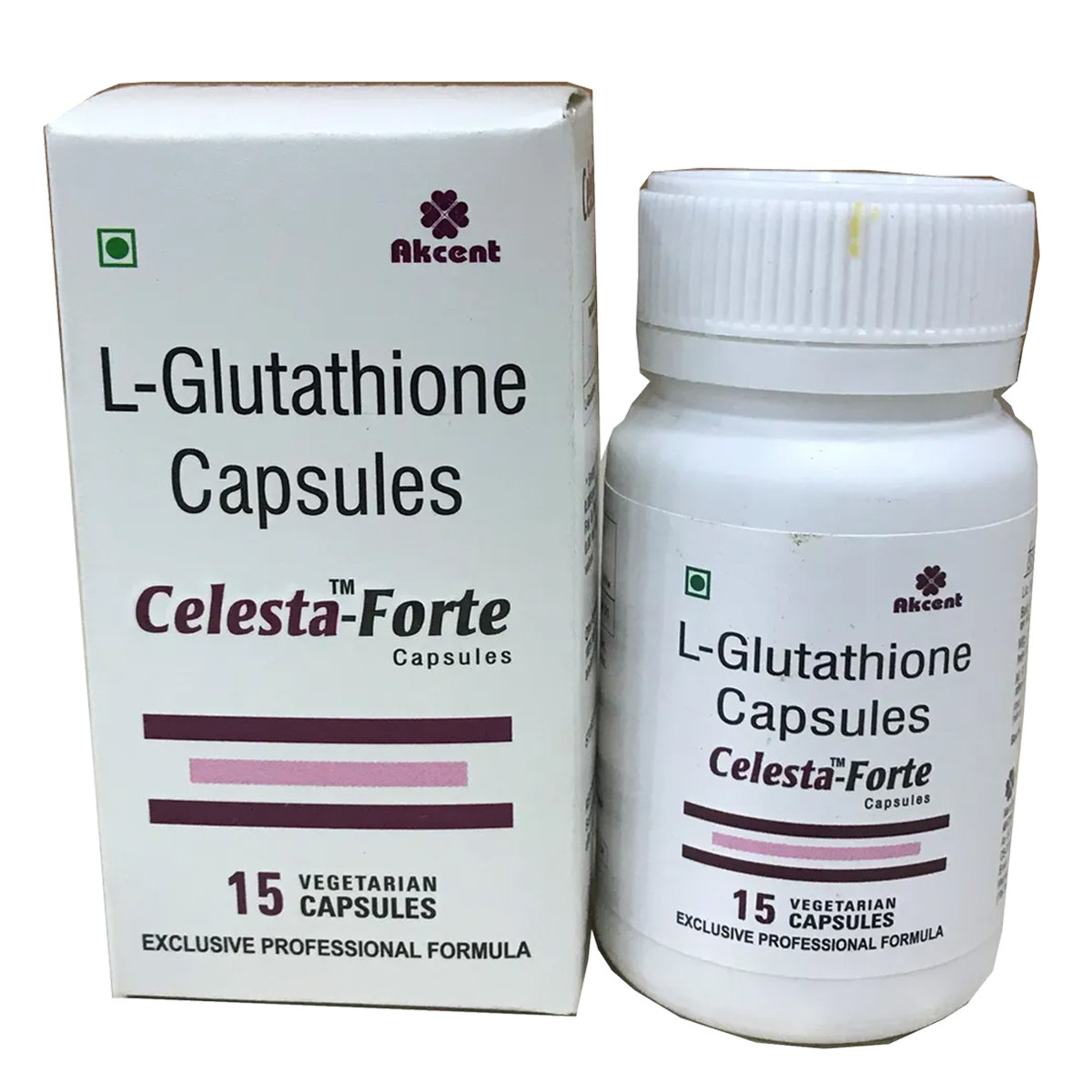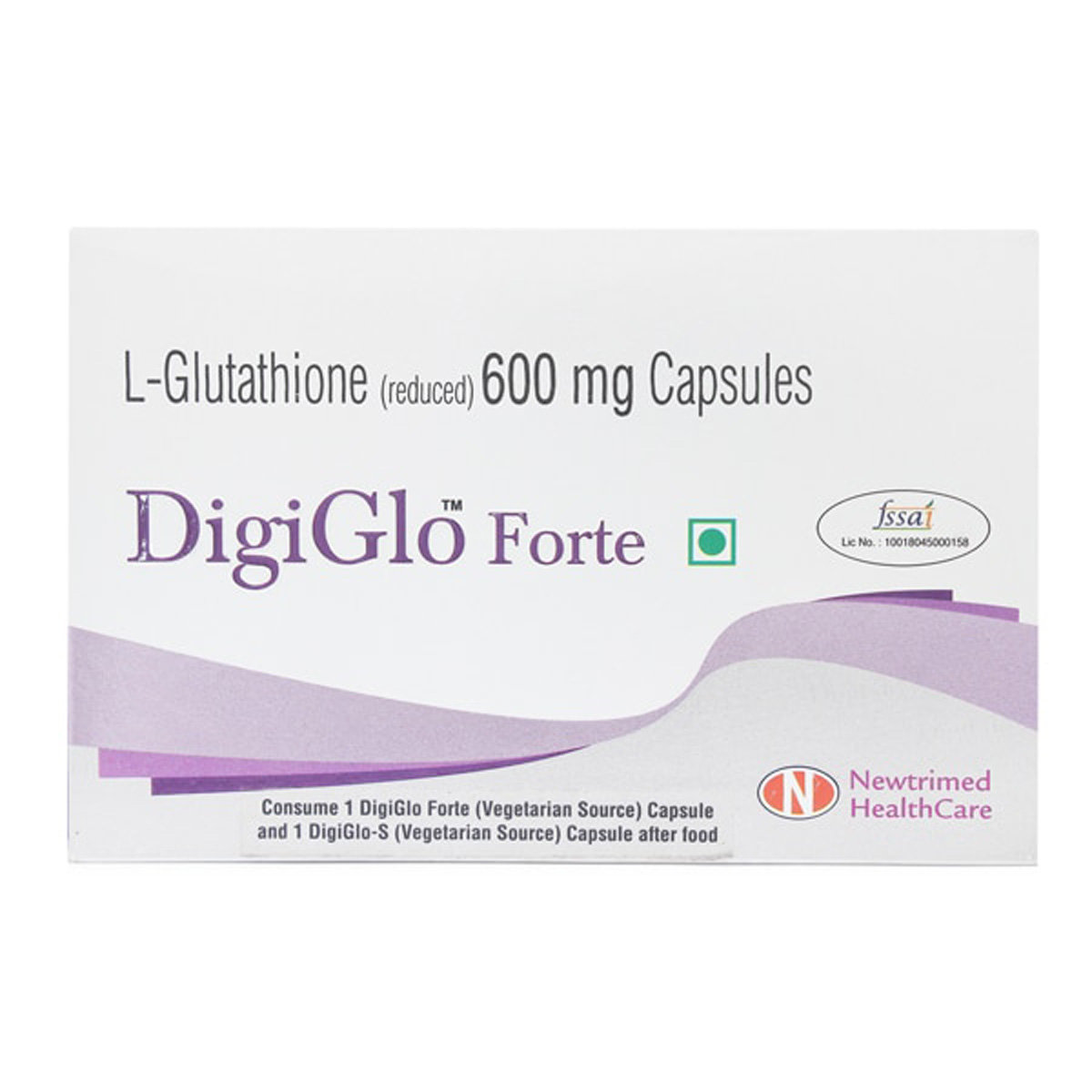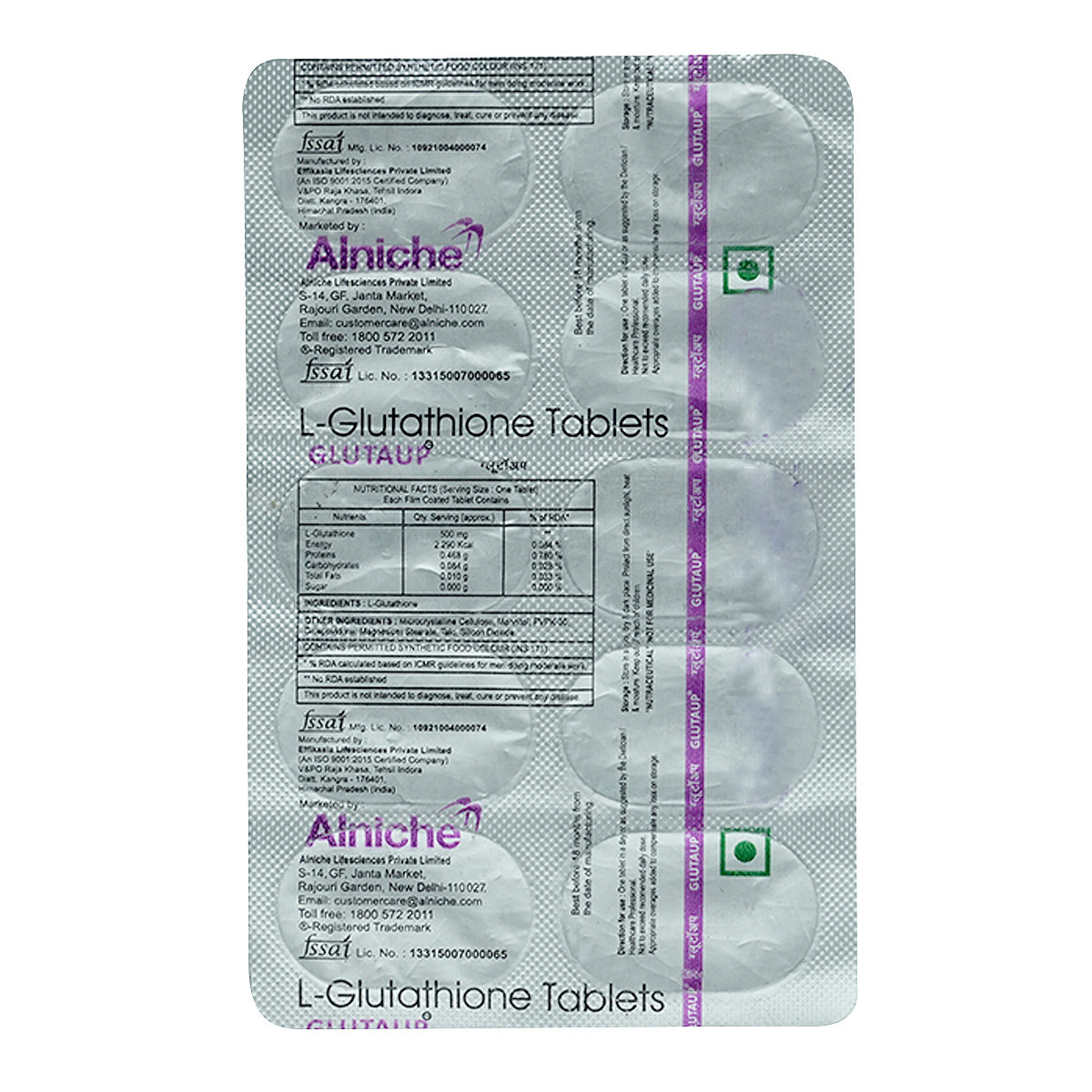Glutathione
About Glutathione
Glutathione is used in case of low dietary intake or increased need for glutathione. It is also indicated in the treatment of alcoholic liver disease, liver cirrhosis, and liver damage in HIV/HCV co-infection and in gastritis.
Glutathione contains ‘Glutathione’, an antioxidant made up of three amino acids, namely glycine, glutamic acid, and cysteine. It is involved in various processes such as tissue building and repair and making proteins and chemicals necessary for the body. It protects against oxidative damage and prevents liver damage.
You are advised to take Glutathione for as long as your doctor has suggested it for you, depending on your medical condition. In some cases, Glutathione may cause flatulence, loose stools, flushing, and weight gain. You are advised to talk to your doctor if the side effects persist or worsen.
If you are known to be allergic to any of the components in Glutathione, please inform your doctor. Consult your doctor if you are pregnant or breastfeeding. Keep your doctor informed about your health condition and medications to rule out any interactions/side effects.
Uses of Glutathione
Medicinal Benefits
Glutathione is used in case of low dietary intake or increased need for glutathione. It is also indicated in the treatment of alcoholic liver disease, liver cirrhosis, and liver damage in HIV/HCV co-infection and gastritis. Glutathione contains ‘Glutathione’, an antioxidant made up of three amino acids: glycine, glutamic acid, and cysteine. It is involved in various processes such as tissue building and repair, making proteins and chemicals necessary for immune system function. It protects against oxidative damage and prevents liver damage.
Directions for Use
Storage
Side Effects of Glutathione
- Flatulence
- Loose stools
- Flushing
- Weight gain
Drug Warnings
Do not take Glutathione if you are allergic to any of its components. Consult your doctor if you are pregnant or breastfeeding. Let your doctor know if you are taking any other medicines or herbal products.
Drug Interactions
Drug-Drug Interactions: No interactions found/established.
Drug-Food Interactions: No interactions found/established.
Drug-Disease Interactions: No interactions found/established.
Drug-Drug Interactions Checker List:
Safety Advice

Alcohol
consult your doctorIt is not known if alcohol interferes with the working of Glutathione. Please consult a doctor.

Pregnancy
consult your doctorLimited data is available. Please consult your doctor if you are pregnant or if you have any concerns regarding this.

Breast Feeding
consult your doctorLimited data is available. Consult your doctor if you are breastfeeding.

Driving
cautionIt is unknown whether Glutathione affects your ability to drive. Drive or operate machinery only if you are alert.

Liver
consult your doctorLimited data is available. Please consult your doctor if you have a liver impairment or any concerns regarding this.

Kidney
consult your doctorLimited data is available. Please consult your doctor if you have kidney impairment or any concerns regarding this.

Children
consult your doctorLimited data is available regarding the usage of Glutathione in children, so please consult a doctor.
Habit Forming
Diet & Lifestyle Advise
- Follow a well-balanced diet.
- Exercising regularly helps in improving overall health.
- Rest well, and get plenty of sleep.
- Avoid smoking and alcohol consumption.
- Meditation and yoga can help lower stress.
- Avoid processed and fried food.
Patients Concern
Disease/Condition Glossary
Glutathione deficiency: Glutathione deficiency occurs due to low dietary intake, increased need for glutathione, or when the body does not produce sufficient glutathione. Symptoms include anaemia, metabolic acidosis (build-up of acid in the body), and frequent infections.
Alcoholic liver disease: It is caused due to heavy consumption of alcohol. Over time it could lead to scarring and cirrhosis of the liver. Symptoms include feeling sick, loss of appetite, weight loss, and yellowing of the skin and eyes.
Liver cirrhosis: Liver cirrhosis is the damage of the liver, which causes scarring and liver failure. Symptoms include weakness, tiredness, nausea, vomiting, loss of appetite, and yellowing of the skin and eyes.
FAQs
Glutathione is involved in various processes such as tissue building and repair, strengthening of the immune system, and production of chemicals and proteins required for the body. It helps reduce oxidative damage and prevent liver damage.
Glutathione is naturally found in broccoli, Brussels, cauliflower, cabbage, asparagus, potato, carrots, pepper, avocados, spinach, and melons.
If you miss a dose, take it as soon as you remember. However, if it is time for the scheduled dose, skip the missed dose and take the scheduled dose instead.








